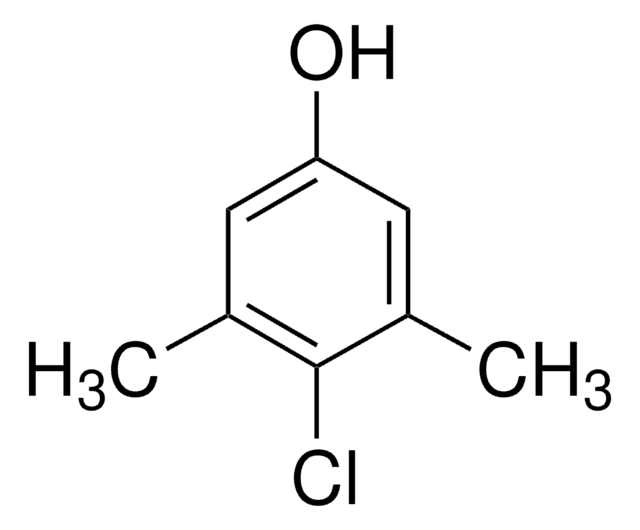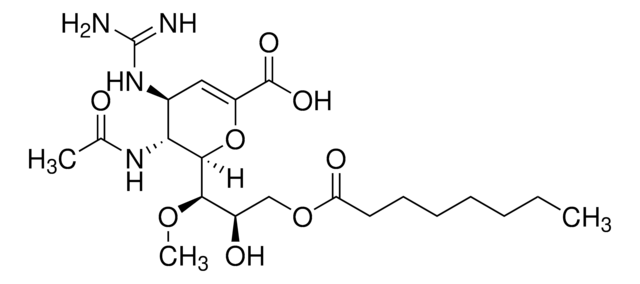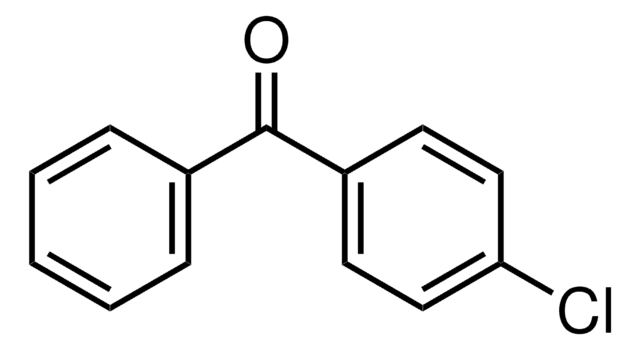C38303
4-Chloro-3,5-dimethylphenol
99%
Synonym(s):
4-Chloro-3,5-xylenol, 4-Chloro-sym-m-xylenol, PCMX
Sign Into View Organizational & Contract Pricing
All Photos(3)
About This Item
Linear Formula:
ClC6H2(CH3)2OH
CAS Number:
Molecular Weight:
156.61
Beilstein:
1862539
EC Number:
MDL number:
UNSPSC Code:
12352100
PubChem Substance ID:
NACRES:
NA.22
Recommended Products
Quality Level
Assay
99%
form
powder
mp
114-116 °C (lit.)
SMILES string
Cc1cc(O)cc(C)c1Cl
InChI
1S/C8H9ClO/c1-5-3-7(10)4-6(2)8(5)9/h3-4,10H,1-2H3
InChI key
OSDLLIBGSJNGJE-UHFFFAOYSA-N
Looking for similar products? Visit Product Comparison Guide
Related Categories
Application
- Synthesis and Spectroanalytical Studies of a New Azodye Derived From 2-Amino-6-ethoxybenzothiazole and 4-Chloro-3,5-dimethylphenol: Discusses the synthesis and characterization of a new azo dye derived from 4-chloro-3,5-dimethylphenol, highlighting its potential applications in dyeing and pigments (AA Ali, 2017).
- Crystal structure of the co-crystalline adduct 1, 3, 6, 8-tetraazatricyclo dodecane (TATD)–4-chloro-3,5-dimethylphenol (1/1): This paper details the crystal structure of a complex formed with 4-chloro-3,5-dimethylphenol, providing insights into its structural properties (A Rivera et al., 2015).
Signal Word
Warning
Hazard Statements
Precautionary Statements
Hazard Classifications
Acute Tox. 4 Oral - Eye Irrit. 2 - Skin Irrit. 2 - Skin Sens. 1
Storage Class Code
11 - Combustible Solids
WGK
WGK 1
Personal Protective Equipment
dust mask type N95 (US), Eyeshields, Gloves
Choose from one of the most recent versions:
Already Own This Product?
Find documentation for the products that you have recently purchased in the Document Library.
Customers Also Viewed
R J W Lambert
Journal of applied microbiology, 97(4), 699-711 (2004-09-11)
To analyse population minimum inhibitory concentrations (MICs) data from clinical strains of Staphylococcus aureus and Pseudomonas aeruginosa for changes over a 10-year period and to look for correlations between the antimicrobials tested. Data from the MIC study of 256 clinical
S Messager et al.
The Journal of hospital infection, 58(2), 115-121 (2004-10-12)
An ex vivo test was adapted to mimic the in vivo conditions of testing antiseptic activity on human forearms and in the European Standard Hygienic Handwash Test (BSEN 1499). The study was to validate the ex vivo protocols using 4.8%
S Messager et al.
Journal of applied microbiology, 97(6), 1149-1160 (2004-11-18)
To determine bacterial survival on human skin and their sensitivity to antisepsis. An 'ex vivo' protocol which uses human skin samples placed into diffusion cells, and electron microscopy (EM), were used to study the growth of Staphylococcus aureus, Escherichia coli
F Boutli et al.
Drugs under experimental and clinical research, 29(3), 101-105 (2004-01-08)
A 12-week double-blind randomized study was performed to compare benzoyl peroxide 5% (BP) gel and chloroxylenol 0.5% plus salicylic acid 2% (PCMX + SA) cream (Nisal cream) for efficacy and adverse reactions. Thirty-seven volunteers participated in the study, 19 in
Diah R Hadiati et al.
The Cochrane database of systematic reviews, 9(9), CD007462-CD007462 (2012-09-14)
The risk of maternal mortality and morbidity (particularly postoperative infection) is higher for caesarean section than for vaginal birth. With the increase in caesarean section, it is important that the risks to the mother are minimised as far as possible.
Our team of scientists has experience in all areas of research including Life Science, Material Science, Chemical Synthesis, Chromatography, Analytical and many others.
Contact Technical Service











![Poly[dimethylsiloxane-co-(3-aminopropyl)methylsiloxane] eq. wt. 4,400 Amine](/deepweb/assets/sigmaaldrich/product/structures/427/354/e688e87b-f9db-4070-9e27-fccd23c1dfaa/640/e688e87b-f9db-4070-9e27-fccd23c1dfaa.png)

